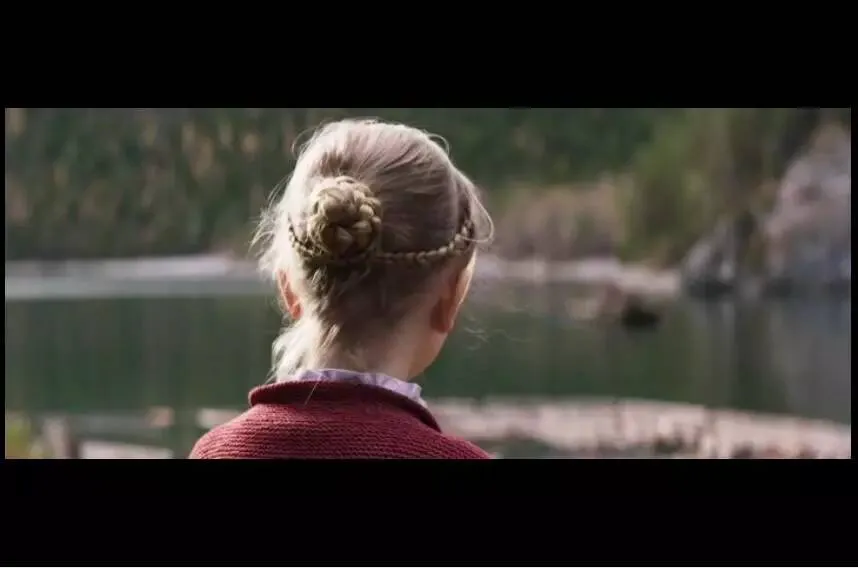“Brimstone”: A Western Unlike Any Other
“Brimstone,” showcased at the Venice Film Festival, stands out as an unconventional “Dutch Western.” Its uniqueness stems from several aspects: a narrative structure that prioritizes consequence over cause, filming entirely in Europe, a brutal dynamic between the male and female leads, and the significant incorporation of religious elements within a Western setting. The film’s core can be interpreted as either a bizarre and twisted love affair or a woman’s lifelong struggle against oppression. Clocking in at 150 minutes, the movie is meticulously divided into four parts: Revelation, Exodus, Genesis, and Retribution.
The film opens with a first-person narration: “Time fades, images blur, leaving only memories, some real, some false. I remember her clearly. She was a warrior, and in those times, survival demanded one to be a warrior.”

(Time fades, images blur, leaving only memories)
Revelation
Liz, a mute midwife, lives peacefully with her family in a Western town until the arrival of a new minister disrupts their lives. During a sermon, Liz is helping her young daughter clean her face when the minister’s words strike her like a thunderbolt, as if a buried past has resurfaced.
(Sermon)
During a childbirth at the church, Liz is forced to choose between saving the mother and the child. She chooses the mother, and the bereaved husband, in a drunken rage, causes a scene. The minister intervenes, and their subsequent exchange hints at a hidden, troubled history between Liz and him.
The minister declares his purpose is to punish Liz, echoing his sermon: “Punishment is coming.”
(Sin and Punishment)
Exodus
Events escalate violently. Liz’s sheep are slaughtered, and she attempts to assassinate the minister in his sleep, only to find her family in danger. The minister infiltrates Liz’s home and murders her husband.
(Scapegoat)
(Punishment)
The violence takes on a sacrificial tone, with the sheep’s heart removed and the husband strangled by his own intestines. After their son delivers a “mercy blow” to his father, the family flees.
(Exodus)
The film transitions to its second chapter, “Exodus,” a term referencing the great escape. In the desert, a young girl in pajamas collapses and is rescued by Chinese immigrants, who then sell her to a brothel.
(Hanging)
Genesis
At this time, she is known as Joanna, a young girl forced to witness the prostitutes entertaining clients. One prostitute defends her, killing a client who tries to assault her, and is subsequently hanged.
(Brothel owner: You are not a child anymore)
The brothel owner gives Joanna a lengthy “emotional education,” to which she replies with the poignant line, “I haven’t been a child for a long time.”
The minister from the first chapter reappears, renting the entire brothel for Joanna alone. Without his scars, he speaks of sin and salvation, remarking that he is guilty because they did not complete the ritual.
(Sin and Punishment)
This leaves us with another mystery: What sin did they commit? At this moment, another prostitute interrupts, and Joanna seizes the opportunity to escape, slashing the minister’s face and neck. She then cuts out her tongue and assumes the identity of a dead prostitute to marry in a Western town.
(Tongue Cut)
The second chapter answers some of the questions from the first, such as the minister’s scars, Liz’s marriage, and her missing tongue.
However, the minister’s obsession with Joanna/Liz remains unclear.
What exactly is the sin the minister refers to?
Why does Joanna appear in that particular state at the beginning of the second chapter?
In short, what happened? And what will happen?
(Aunt Mei hanging herself)
Retribution
The third chapter, “Genesis,” signifies the origin and source of all subsequent events. The fourth chapter, “Retribution,” contains the ending we anticipate. These titles clearly mark the beginning and end of this fragmented story.
(Snow Lord being killed)
I’ll refrain from revealing the specifics of the last two chapters, encouraging you to discover them yourself, as they hold the film’s greatest suspense. However, I can offer a slight spoiler: Melisandre and Jon Snow, who have been absent from the screen for some time, will reappear, only to be defeated by the minister. This time, Jon Snow does not resurrect.
(Whipping)
Overall, the film resembles a four-part symphony, rich with emotion and meticulously structured. It possesses both profound religious undertones and exceptional art direction and cinematography.
It is the story of a female warrior constantly resisting external fate. The film’s English title, “Brimstone,” signifies the wrath of God in the Bible, referring to the burning fire in hell. The film concludes with a great fire, reminiscent of the Western proverb: Fire purifies everything.